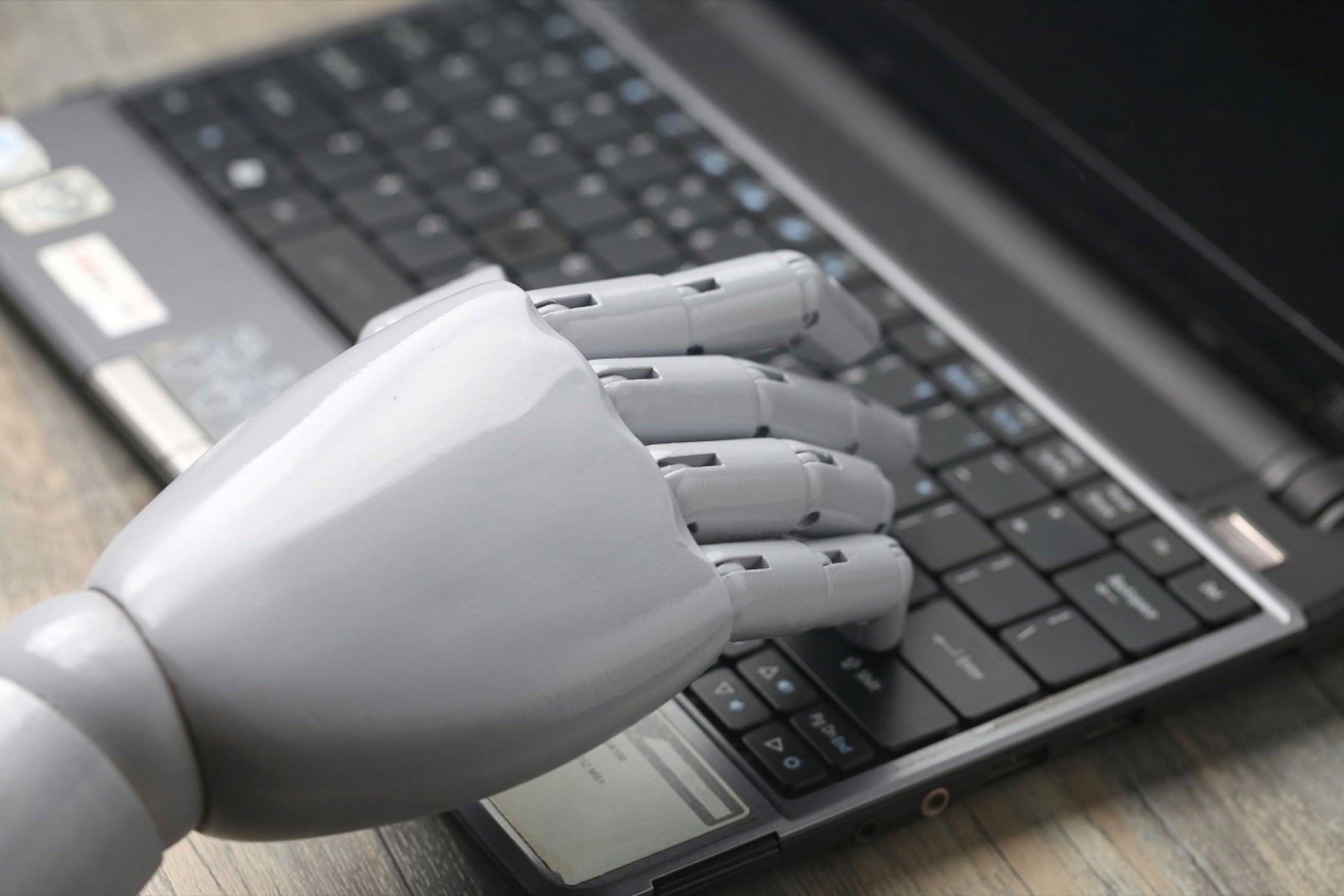Machines will Handle Over Half Workplace Tasks by 2025 About 75 million jobs worldwide will be lost, a WEF research shows
By Pooja Singh •
Opinions expressed by Entrepreneur contributors are their own.
You're reading Entrepreneur Asia Pacific, an international franchise of Entrepreneur Media.

The labour market will change drastically in the coming years. Machines will carry out more than half of all tasks at the workplace by 2025. The employment of technologies like robotics and artificial intelligence, however, would create more jobs, not threaten them.
A recent report by the World Economic Forum, "Future of Jobs", estimates that 52 per cent of the division of labour will be done machines in the next seven years, compared to the present 29 per cent. The report adds that 75 million jobs will be lost across the world within the next four years, but 133 million new job opportunities will be created.
What the Future Looks Like
"By 2025, the majority of workplace tasks in existence today will be performed by machines or algorithms. At the same time a greater number of new jobs will be created," says Saadia Zahidi, a board member of the World Economic Forum. "Our research suggests that neither businesses nor governments have fully grasped the size of this key challenge of the Fourth Industrial Revolution."
The report was based on a study of executives and specialists representing 15 million employees across 12 industries.
Increasing Demand
The report highlights some interesting trends: within the next four years, almost half of all companies expect their workforces to reduce, while two in five expect to extend their workforce.
Despite the growth, the WEF predicts a "significant shift in the quality, location, format and permanency of new roles. Businesses are to expand use of contractors for task-specialized work, engage workers in more flexible arrangements, utilize remote staffing, and change up locations to get access to the right talent."
Among the range of established roles that are set to experience increasing demand in the period up to 2022, the report says, are data analysts and scientists, software and applications developers, and e-commerce and social media specialists, "roles that are significantly based on and enhanced by the use of technology".
Other roles expected to grow are those that leverage distinctively "human" skills, such as customer service workers, sales and marketing professionals, training and development, people and culture, and organizational development specialists as well as innovation managers, says the report.
"Our analysis finds extensive evidence of accelerating demand for a variety of wholly new specialist roles related to understanding and leveraging the latest emerging technologies: AI and machine learning specialists, big data specialists, process automation experts, information security analysts, user experience and human-machine interaction designers, robotics engineers, and blockchain specialists."
Key Concerns
Among the major challenges the report highlights are the reskilling and re-training of the employees for new work that will be created. The report found that one in three respondents planned to reskill at-risk workers. "Skills continuing to grow in prominence by 2022 include analytical thinking and innovation as well as active learning and learning strategies," it says.
The report notes three future strategies that companies interviewed have highlighted to manage the skills gaps widened by the adoption of new technologies—"they expect to hire wholly new permanent staff already possessing skills relevant to new technologies; seek to automate the work tasks concerned completely; and retrain existing employees."
In conclusion, the report calls for a comprehensive "augmentation strategy", where businesses look to utilize the automation of some job tasks to complement and enhance their human workforces' comparative strengths and ultimately to enable and empower employees to extend to their full potential.












